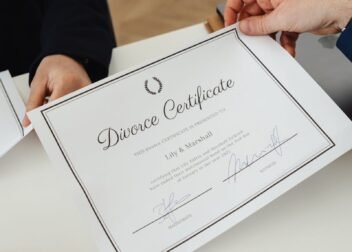Understanding Your Rights After an Injury on Business Property
Imagine this: You walk into a store, restaurant, or shopping mall, just going about your day. Suddenly, you slip on an unmarked wet floor, trip over an uneven sidewalk, or get hit by a falling object. Now, you’re not just dealing with pain—you’re also facing medical bills, lost wages, and the stress of recovery. So, can you hold the business accountable for your injury? The short answer: Yes, in many cases, you can sue a business if their negligence caused your injury.
Let’s break down how premises liability works, when a business is legally responsible, and what steps you should take if you’ve been injured.
When Is a Business Liable for Injuries?
Businesses have a legal duty to maintain a reasonably safe environment for their customers and visitors. If they fail to do so, they may be held responsible under premises liability laws. However, proving liability requires showing that:
- The business owed you a duty of care – Businesses are legally required to keep their premises safe for customers, employees, and visitors.
- The business was negligent – This means they failed to take reasonable steps to prevent a dangerous condition (e.g., not cleaning up a spill, ignoring broken stairs, or failing to provide adequate security).
- The negligence caused your injury – You must show that your injury resulted directly from the business’s failure to maintain a safe environment.
- You suffered actual damages – This includes medical expenses, lost wages, pain and suffering, and other losses related to the injury.
Common Causes of Injuries on Business Properties
Various hazards can cause injuries on commercial properties, including:
- Slip and fall accidents – Wet floors, icy sidewalks, poor lighting, and loose rugs can lead to dangerous falls.
- Trip and fall hazards – Uneven flooring, broken sidewalks, or misplaced objects can cause serious injuries.
- Falling objects – Items falling from shelves or construction debris can result in head and bodily injuries.
- Negligent security – Lack of security measures, such as poor lighting or broken locks, can lead to assaults or robberies.
- Unsafe staircases and elevators – Broken handrails, malfunctioning elevators, and poorly maintained escalators can be hazardous.
What to Do If You’re Injured at a Business
If you suffer an injury on someone else’s property, taking the right steps can help strengthen your case:
- Seek medical attention immediately – Your health comes first, and medical records will serve as crucial evidence.
- Report the incident – Notify the store manager, property owner, or business representative and request a written report.
- Gather evidence – Take photos of the accident scene, hazardous conditions, and your injuries. Collect witness contact information if possible.
- Keep records – Save medical bills, receipts, lost wage documentation, and any communication with the business or its insurance company.
- Consult a personal injury attorney – A lawyer can help assess your case, negotiate with insurance companies, and represent you in court if needed.
How Much Compensation Can You Get?
The amount of compensation depends on factors like the severity of your injury, medical expenses, lost income, and pain and suffering. Compensation may include:
- Medical costs (hospital bills, rehabilitation, medication)
- Lost wages (if you missed work due to your injury)
- Pain and suffering (physical and emotional distress)
- Punitive damages (in cases of extreme negligence or misconduct)
According to legal experts, slip and fall injury settlements can range from a few thousand dollars to over $100,000, depending on the circumstances.
When Should You Hire a Lawyer?
While minor cases may be settled through an insurance claim, hiring a personal injury lawyer is often beneficial if:
- The business denies liability.
- Your injuries are severe or long-term.
- The insurance company offers a low settlement.
- There are complex legal issues involved.
Most personal injury attorneys work on a contingency basis, meaning they only get paid if you win your case.
FAQs About Suing a Business for Injuries
1. What if I was partially at fault for my injury?
Many states follow comparative negligence laws, meaning you can still recover damages even if you were partially responsible—though your compensation may be reduced.
2. Can I sue a small business for an injury?
Yes, but compensation may depend on whether they have liability insurance or assets to cover your damages.
3. How long do I have to file a lawsuit?
The time limit (statute of limitations) varies by state, typically ranging from 1 to 4 years from the date of injury.
4. What if I was injured outside a business, like in a parking lot?
Liability depends on who owns and maintains the property. If the business is responsible for upkeep, they may still be held accountable.
5. Can I sue if I didn’t seek medical attention right away?
Yes, but delayed medical treatment can make proving your case harder. Insurance companies may argue your injury wasn’t serious or wasn’t caused by the accident.
Final Thoughts: Protecting Your Rights After an Injury
If you’ve been injured due to a business’s negligence, you have the right to seek compensation. Taking immediate action—documenting the scene, reporting the incident, and consulting an attorney—can strengthen your case and help you get the compensation you deserve.
Need legal guidance? Speak with a personal injury attorney to understand your options and protect your rights.
Get the Compensation You Deserve After Your Accident
If you’ve been injured in a car crash that wasn’t your fault, don’t settle for silence or confusion. Lawayer.com connects you with› experienced attorneys who can fight for your rights and help you recover what you’re owed. Time matters—take the first step now



